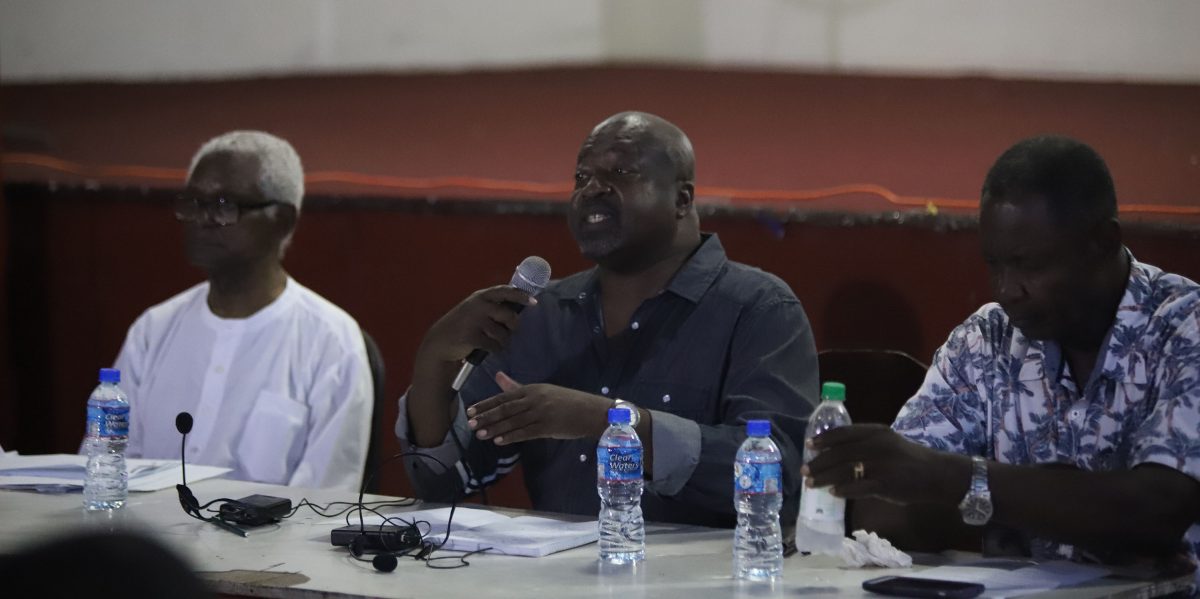Professor Clive Thomas has given more details on the proposed policy of cash transfers (CTs) showing that they would be affordable and would deliver significant economic and social benefits to working class households.
“The Buxton Proposal” is named after comments Thomas made last year in the same East Coast village that ignited a debate about how best to distribute the oil wealth Guyana will reap in the next decade. And he was quick to point out that for the scheme to be effective it would need to reach almost all households so as to address concerns it favoured one strata of society or ethnic group. The coalition government has been lukewarm to the idea with the President yet to take a position, although the Alliance for Change (AFC) has declared its support for conditional cash transfers.
Speaking at a well-attended symposium at the Critchlow Labour College, Thomas urged the audience to support the Working People’s Alliance (WPA) in making cash transfers “a central theme of these upcoming elections”. Fellow panelist trade unionist Lincoln Lewis also said it was one idea he certainly would get behind. WPA member David Hinds noted that whenever the party visited depressed communities a main topic of interest was cash transfers or “The $1M Initiative” as it was dubbed.
Hinds said it was the first time in Guyana’s post-colonial history that the country would have such substantial resources to make a big difference in the structural problem of poverty inherited from colonialism and slavery that were also policies. As such he saw cash transfers as a policy aimed at poverty alleviation and one that came from “deep historical places” within the WPA’s struggle for the working class. He also took offence at the use of the word “handouts” to describe such transfers. That, he said, more applied to politicians giving out kites and hampers at special times of the year. This was about caring for the welfare of the people – the primary duty of any government. But he also added that governments can gain wider legitimacy from such schemes as all would benefit regardless of any ethnic divide.
Professor Thomas said such a scheme “could remove the curse that has bedeviled Guyana since the days of slavery.” But for them to work they must be reliable, predictable, rules based and include almost all households with few exceptions. Naturally the households that would benefit most would be poorer ones who through the safety net of CTs would be freed from uncertainty brought on by fluctuating incomes and consumption levels.
He was scathing of the critics of his proposal, many of who come from a business class, quite happy to receive similar transfers in the forms of subsidies or tax breaks. He said only when such transfers were proposed for poor people it was said they encouraged dependency and unemployment. And he laughed at the notion from many in the elite that poor people would stop working for $1m per year: “They genuinely believe that!”
As to its affordability even paying $1M to the estimated 210,000 Guyanese households every year for a total cost of US$1.05B, Thomas calculated it was manageable in the long term and any scheme would be limited to 10% of total government revenues from oil. But he warned that it would take several years to implement properly and was dependent on oil production being over 1.5M barrels per day – a level not likely until later in the coming decade.
Thomas said he did not have an opinion on whether such transfers should be conditional even as Hinds noted that several studies showed that when linked to school attendance and health checkups for minors there had been dramatic improvements.





